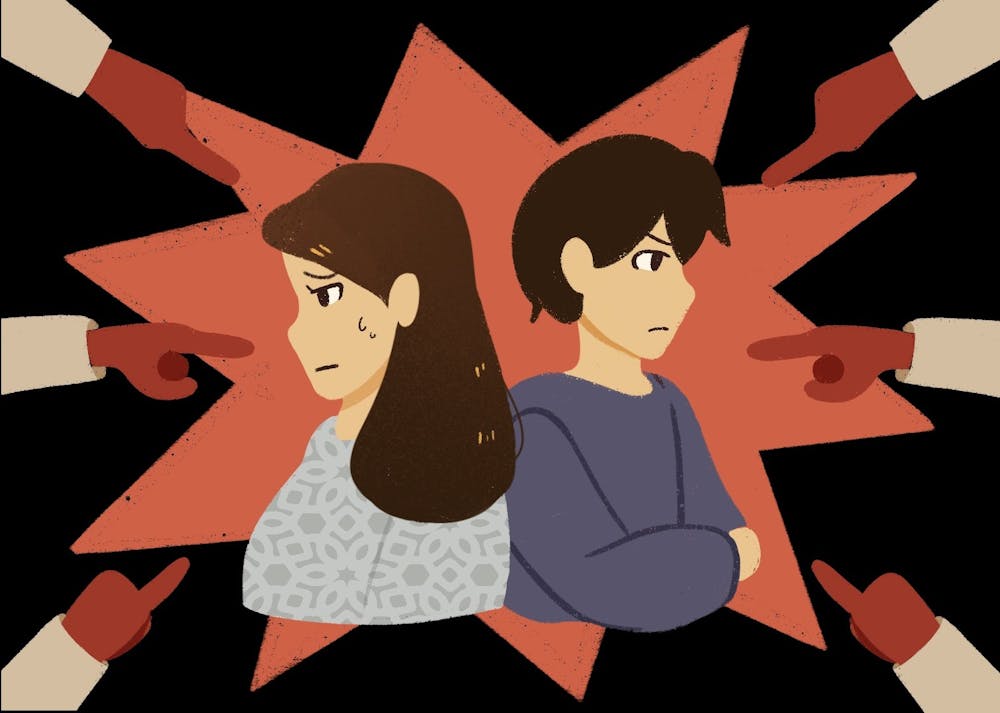Since the ASU community had its first COVID-19 case in January 2020, Asian students have reported and experienced cases of xenophobia and racism in response to the pandemic and its origins in China.
Students and faculty alike have worked to educate, document and respond to the anti-Asian incidents, which have increased in the new year across the country.
Aggie Yellow Horse, assistant professor of Asian Pacific American studies, is working with Stop AAPI Hate to address and assess the scale of hate against Asian Americans and Pacific Islanders in the U.S. since the beginning of the COVID-19 pandemic.
Stop AAPI Hate launched in March 2020 after then-President Donald Trump referred to COVID-19 as the “Chinese Virus” and several instances of hate against Asian Americans were publicly reported. The group organized an online reporting center where individuals may submit detailed descriptions of instances of hate or xenophobia throughout the U.S.
Yellow Horse was asked to join to assist in managing data from reports and reading survey responses after the organization received an overwhelming response.
In August 2020, Stop AAPI Hate reported more than 2,500 instances of anti-Asian discrimination, such as verbal harassment, shunning and physical assaults nationally since March 19. Yellow Horse said in February alone, 500 more were reported to the site, making the total 3,500 cases.
“It just kind of got out of hand in some ways that there were just so (many) reports coming in,” Yellow Horse said. “It’s so much more than they anticipated.”
Stop AAPI Hate has also done research in collaboration with the American Psychological Association assessing the psychological effects of discrimination in the Asian community.
In their studies, they found that those who have reported to the website were more likely to be depressed and highly anxious compared to those who have not experienced hate incidents during the pandemic, Yellow Horse said. Additionally, many people have experienced second-hand racism or xenophobia online through racist rhetoric or narratives, she said.
For young Asian Americans, this time period may leave lasting implications throughout their adulthood, Yellow Horse said.
“Something that happens in our childhood sometimes has a greater impact on how we see the world, how we navigate things and I do worry that it could have a greater impact on Asian American youth, adolescents and young adults for sure,” Yellow Horse said.
Some Asian students at ASU report having experienced discrimination since the start of the pandemic.
READ MORE: Students report racism, xenophobia in wake of coronavirus concerns
Chao Angela Nachampassak, a sophomore studying business and marketing and vice president of the Southeast Asian American Student Association, said her friend, an international student from Vietnam, had his skateboard stolen after leaving it outside the door of his dorm room.
After confronting the person who took his skateboard, he was told to “go back to (his) country.”
In another instance, Nachampassak said her friend, a Korean American student, was spat on by a passing car while walking around Mill Ave.
“Racist comments like those (are) not exactly the correct way, or any way, to treat anybody in general,” Nachampassak said. “I thought that was interesting how that happened at ASU with someone the same age as us.”
Brandon Yoo, associate professor of Asian Pacific American studies, said there is a long-standing history of racism toward Asian people in America that is often overlooked, which normalizes that discrimination.
“In many ways in the construction of the Oriental and Asian American sort of being passive, it makes them be perceived as an easier target who will not complain,” Yoo said. “Racism has always been that narrative tied to the perpetual foreigner stereotype and tied to the Oriental narrative that just makes us an easier target.”
Although many view them as passive and unchallenging to the system, Asian Americans have fought, contested and built coalitions to challenge these stereotypes and discrimination, Yoo said.
Alexis Kim, a sophomore studying nursing and historian and social media chair of the Korean-American Student Association, is concerned this issue is not being thoroughly reported across mainstream news publications.
However, through social media platforms like Instagram and Twitter, Kim is exposed to many recorded instances of hate toward Asian individuals during the pandemic.
“It’s been a year, vaccine rollout isn’t doing very well and as people are getting more and more unsettled with having to stay inside and wear masks, their hatred and aggression has to go somewhere,” Kim said. “They can’t deal otherwise and then it just goes to the Asian American community.”
Both Kim and Nachampassak have used their social media to share and educate their followers about racism toward the Asian community — reposting videos, sharing informational graphics and writing their own sentiments on the issue.
“I think people think that dealing with Asian discrimination has to be such a large task but honestly we can start very small, start locally and start with ASU,” Nachampassak said. “How can we as a community, within ASU, build that community in order for cases like what happened to my friend with the skateboard to not continue to happen?”
Yoo encourages members of the ASU community to educate themselves on discrimination against Asian Americans as a way of solidarity and creating a sense of support during these difficult times.
“Find like-minded people and create space to be able to find support and healing and safety,” Yoo said. “(Think) about how to use that to translate into some sort of meaningful actions that protects and empowers our families and our broader community.”
Reach the reporter at kncasti1@asu.edu and follow @kristencasti11o on Twitter.
Like The State Press on Facebook and follow @statepress on Twitter.
Continue supporting student journalism and donate to The State Press today.
Kristen Apolline Castillo is the community and culture editor for The State Press. She has been working for the publication for two years, where she also reported for the desk.




